Is Tunisia Safe In 2025?
- Alexander
- One Comment
Is Tunisia Safe to Visit in 2025?
In recent years, most headlines about Tunisia have focused on the Arab Spring, terrorist attacks, or the ongoing economic crisis, so asking whether Tunisia is a safe country to visit in 2025 is a fair question.
Tunisia was once one of the most visited countries in Africa and even today, it still ranks just behind Morocco and Egypt in tourist numbers. Not long ago, millions of European tourists flocked here for affordable beach holidays. But after two major terrorist attacks in 2015 and another in 2020, tourism declined sharply.
These days, most visitors still stick to hotel resorts, enjoying the beaches and all-inclusive deals without really exploring the country. While that’s totally fine, this post mainly focuses on travelling throughout the country outside of the hotel resorts.
I’ll cover what it’s actually like to travel through Tunisia in 2025, looking at safety concerns like corruption, pickpocketing, scams, dangerous areas, and more.
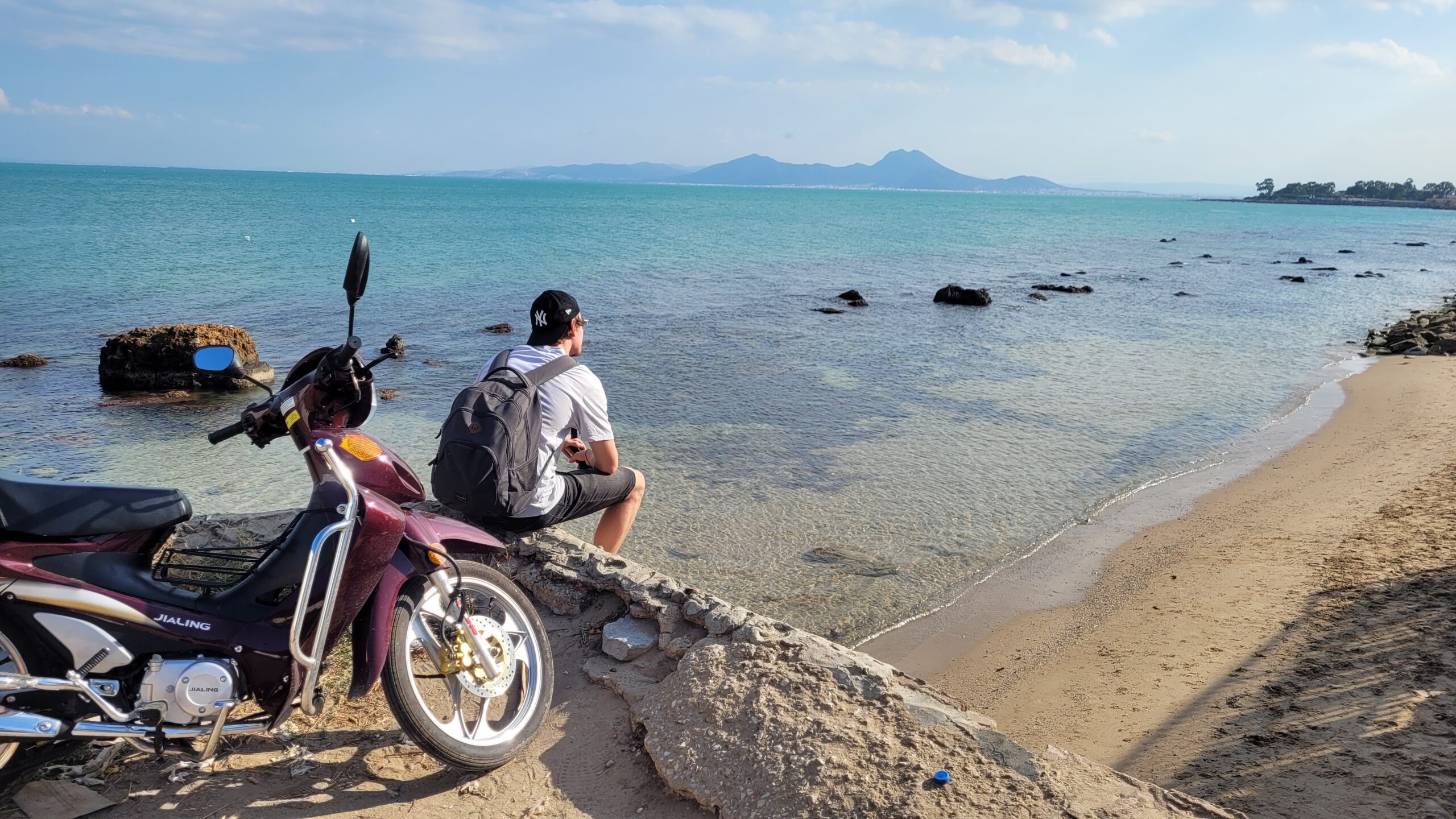
Terrorism & Background Information
Before 2011 Tunisia welcomed tons of europeans tourists who came to enjoy the sunny weather, cheap hotels and beautiful beaches. After the Arab spring in 2011 Tunisia faced two major Terrorist Attacks in 2015:
-
In March, attackers targeted the Bardo National Museum in Tunis, killing 22 people, mostly foreign tourists.
-
In June, a gunman opened fire at a beach resort in Sousse, resulting in 38 deaths.
In 2020 a suicide bombing killed two police officers. Additional to that Bus attacks happened in 2015, 2016 and 2018. Also there has been tension between Tunisia and Libya, fueling safety concerns.
Now this might seem really dangerous alerady and maybe you even want to close this Article already, but please bare with me here for a minute.
I’m not listing these events to scare you. I want to be transparent about Tunisia’s past, because context matters. Like many countries in Africa, Tunisia is often only mentioned in headlines when something goes wrong. But those headlines don’t reflect the everyday reality.
Tunisia has steadily regained its footing and rebuilt its safety measures. While no place is 100% risk-free, daily life here is generally peaceful, normal, and incredibly welcoming.
So let me give you a realistic, updated safety analysis of what it’s actually like to visit Tunisia in 2025.
🔗 Travelling through Tunisia? Check out:
Table of Contents
🏙️ Safety in major cities
Depending on your travelstyle, there’s a pretty good chance you’ll mostly stick to the big cities like Tunis, Sousse, and Djerba. Urban areas is generally where the most petty crime like pickpocketing happens. I spent roughly one week in the capital and other major cities and experienced no situations where it seemed as if anyone wanted to steal my belongings. Yet you should use common sense and not flash expensive jewlery or watches, don’t hold your phone or other belongings close to the window when sitting in a car, since it can get easily snagged. I’d recommend getting a stomach bag to keep travel documents and money hidden under your shirt. Violent crime is very rare, but you should not go out alone at night in dodgy neighbourhoods.
Personally I only had good interactions with locals. Most people where nice and respectful. However just like in every place in this world there is a small minority of people who will take advantage of tourists.
💡 I highly recommend purchasing a small stomach bag for under your shirt to carry passport and credit card unseen.

🏞️ Safety in rural areas
If you’re into more off-the-beaten-path travel like me, you’ll probably find yourself exploring a few rural villages and remote areas at some point. Unfortunately, public transportation is pretty limited out there, so to really experience these places properly, you’ll probably need to rent a car. (I go into more detail on that in my Tunisia Travel Guide.)
Rural Tunisia feels super relaxed and honestly quite safe. I actually felt more at ease walking around small towns and countryside areas than I did in the busy streets of Tunis or Sousse. Petty crime is almost non-existent in these places. Most locals were incredibly friendly and curious about why we were in their town. Especially in the west and the deep south, people don’t see tourists every day, so you really stand out, but in a way that often leads to warm conversations, not sketchy situations.
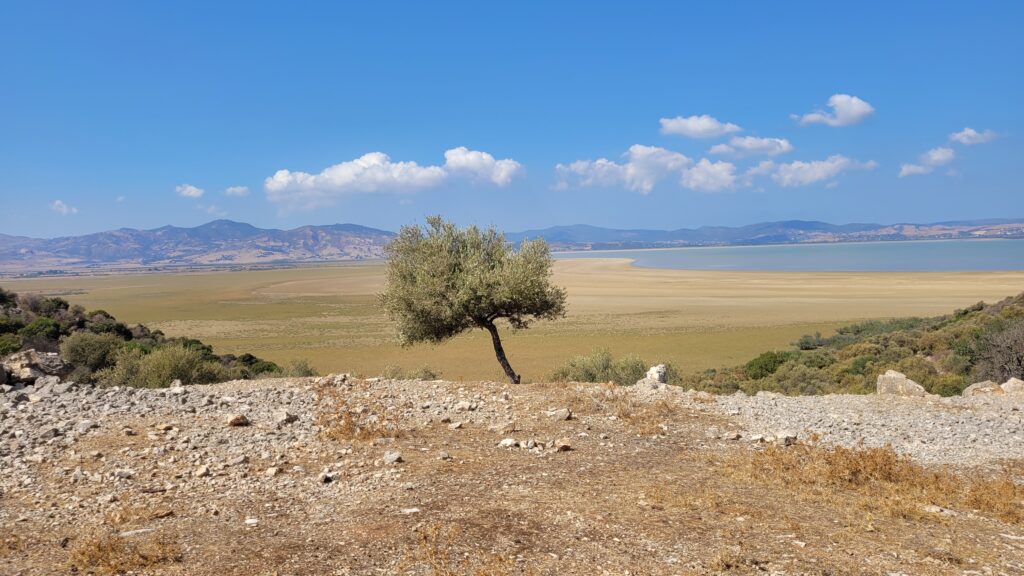
That said, the remoteness can be a bit of a double-edged sword. If something goes wrong help might not be right around the corner. One night, a tire on our car blew out and we had to fix it at 2 a.m. in the middle of the desert, with the next town about 30 km away. If we hadn’t had a spare tire, things could’ve gotten tricky, especially since we had no signal out there. So always make sure you’ve got loads of water with you. My friend and I had a rule of minimum 5 liters in the trunk at all times. I can just recommend doing the same.
There are two regions that are a bit more “special case” though: the western part of Tunisia near the Algerian border, and the deep south near Libya. I’ll talk about both of those in more detail later in the post.
Overall, rural Tunisia felt super chill and safe to me. If anything, it’s where I had the most authentic and welcoming moments of the whole trip.
Areas to Avoid in Tunisia
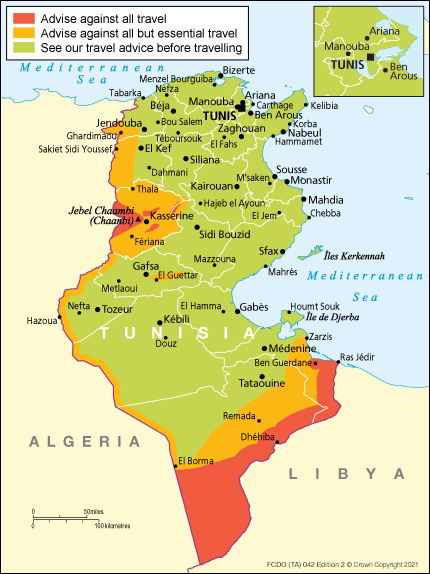
This map shows which areas are considered save according to the british government. Besides the Algerian Border and deep South Tunisia is being considered somewhat save nowadays.
Find more about the Algerian and Libyan border area below.
Tabarka
Tabarka is a small coastal town near the Algerian border with around 15,000 inhabitants. As always, I’m going to be honest with you and well… I hated this place. It was the only spot in all of Tunisia that felt totally soulless, like a big fake. Most of the people there were tourists from Algeria on holiday, who visited Tunisia for cheap booze. Since I visited in October, the tourist season was already over, and most places were shut down. It’s one of those towns that only comes alive when the tourists show up.
Almost all the restaurants and attractions were closed, and the whole area felt like it was trying to look fancy but was mostly made of cheap plastic stuff. My friend and I ended up eating at the only open restaurant, this huge place with two floors and an outdoor terrace, but we were the only customers. The food was awful, and I’m pretty sure it was even bad by the time it got to us. When we complained, they swapped out the plate, but the replacement was even worse. We were worried about food poisoning that we just ate the rice and gave the chicken to the cats.
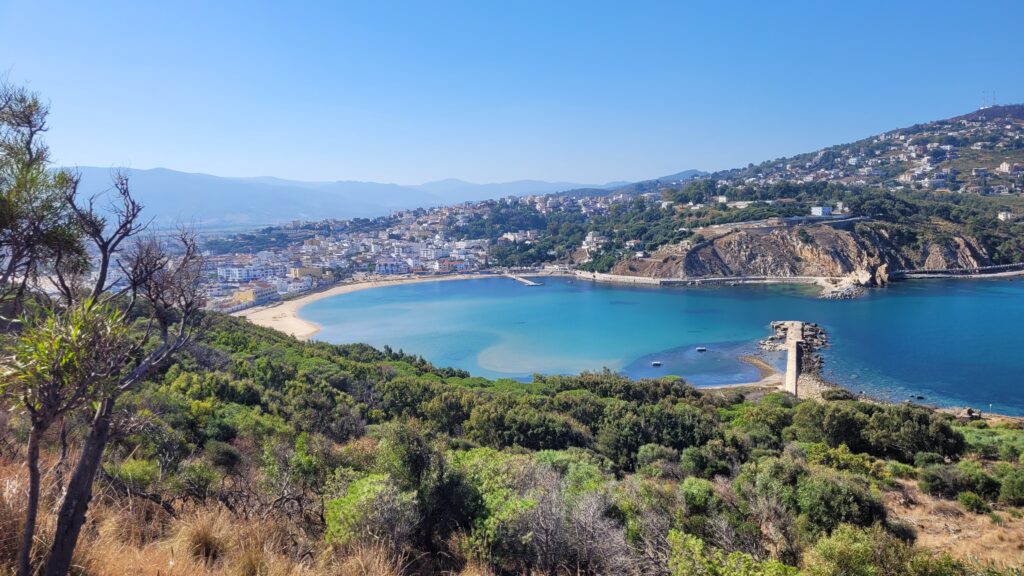
While we were there eating, two guys kept driving around the block, staring at us. Normally, I’d say they just weren’t used to foreigners, but this felt different and as if they were sizing us up, maybe planning to rob us once we left. We waited until they drove past again, then bolted to our car and drove away before they circled back. Oh, and to top it off, we probably paid three times what the meal was worth — definitely got scammed.
Later, we tried to relax with some shisha next to the harbor, and it was the worst I’ve ever had. Also the harbor was completly empty and everything was shut down here as well.
I’ve been holding this in for a while, so sorry for the rant. Maybe I just got a bad first impression of Tabarka and might give it another shot someday. On the bright side, the forests around Tabarka are absolutely stunning, some of the most beautiful spots I saw in Tunisia. But yeah, that night was the only time during my whole trip where I actually felt unsafe.
🇩🇿 Algerian Border Area
I spent three days near the Algerian border, covering everything from Tabarka to Nefta and this was my favorite region in all of Tunisia. You’ll find the friendliest towns, the greenest forests, and ancient Roman ruins that you’ll likely have completely to yourself. It feels raw, untouched, and full of character.
However let’s talk about the safety point of view. As mentioned before I visited this area by car. Smuggling is very common in the border area and we faced several police checkpoints a day. A couple of times I even heard gun shots in the distance, but this is just because of the Tunisian Army having their military bases and training grounds in this area.
That said you should be careful when visiting this area and have your senses up. However most likely you’ll have the best time of your trip here.
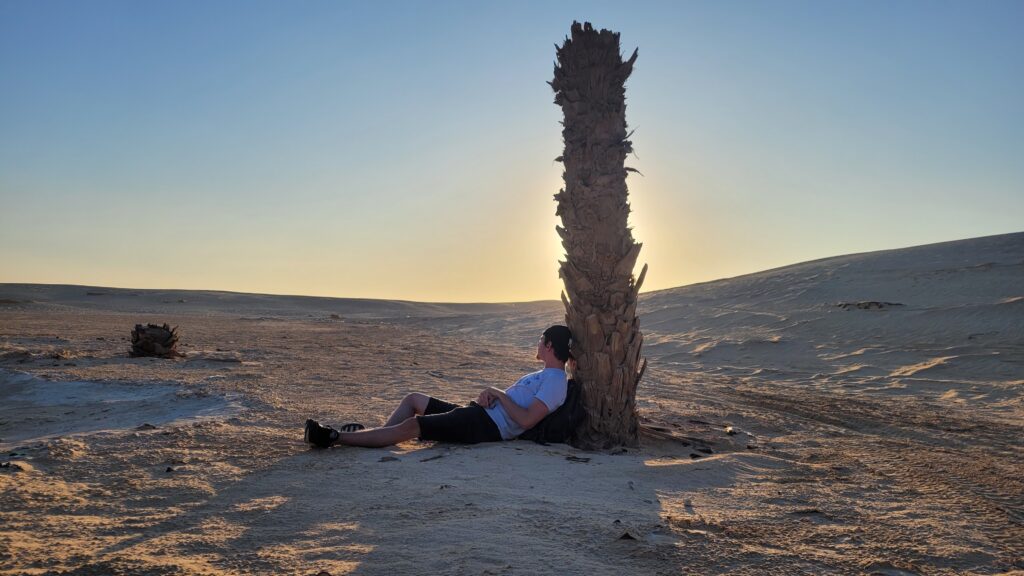
🇱🇾 South Tunisia and Libyan Border
Before I start with this section, just a heads-up: I haven’t personally been to this area. Everything I’m sharing here comes from locals I spoke to and friends who’ve traveled there.
Now, this is the part of Tunisia that most governments will warn you about, mainly due to the risk of kidnapping and the general instability near the Libyan border. The region has a reputation for smuggling and occasional tension, especially the closer you get to Libya.
Foreigners are allowed to visit most areas until Ksar Ouled Soltane, but there are some restricted zones where you can’t go without a special permit or military escorts. Until the town of Tataouine and even Ksar Ouled Soltane you can travel without the worry of being kidnapped, even though you should already keep up your senses just like at the algerian border.
Once you reach the town of Remada and get closer to the actual border zone, things change. You won’t be able to move around freely anymore. This area is heavily monitored, and there are restricted zones where you’ll need a special permit or even a military escort to go any further.
Also, keep in mind: this is the desert. Fuel stations are few and far between, so top up your tank whenever you can. And just like I mentioned earlier always carry a solid amount of water with you. Out here, getting stranded without signal or supplies won’t be fun.
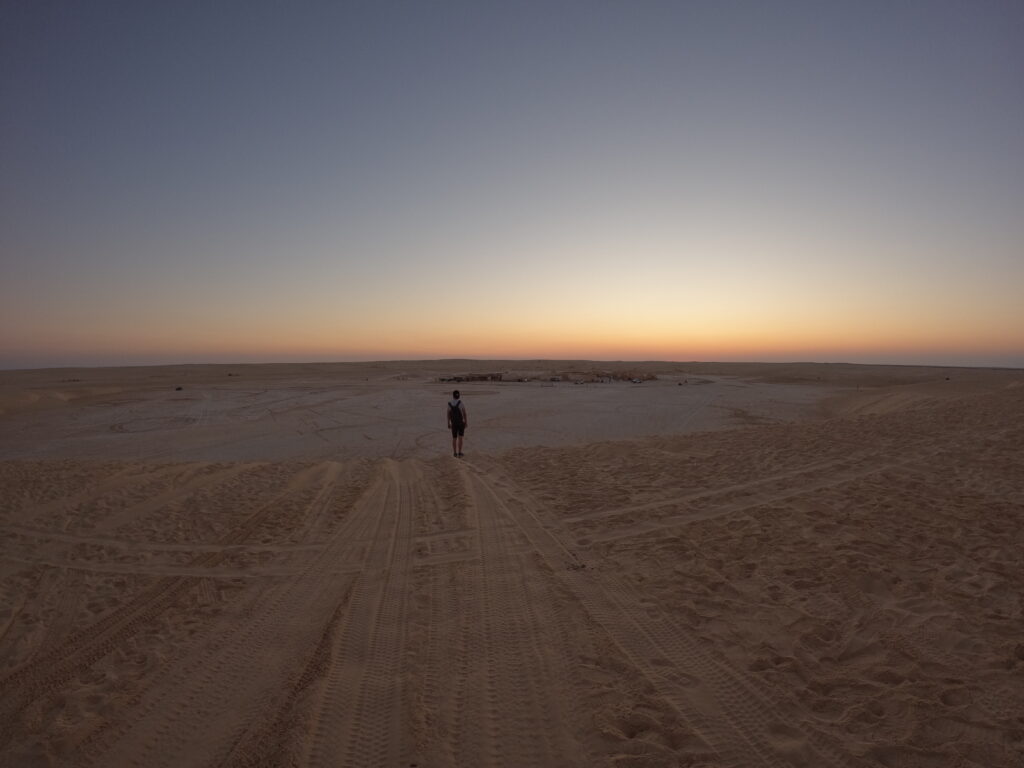
🚗 Driving independently
My friend and I booked a car online in advance… and got scammed. We used the platform booking.com to rent a car in advance.
When we got to the airport, the Europcar guy told us the car hadn’t been paid for, even though we had the receipt and confirmation. I’m still convinced they got the money but just wanted to double charge us. Since the whole trip depended on having that car, we sucked it up and paid again. About €150 each for 10 days
To make things worse, he insisted only one of us could drive. A second driver “wasn’t possible,” even if we paid the normal extra fee. It was pretty obvious he just wanted more cash under the table. We didn’t give in and stuck with one driver for the whole trip. At least officially ; )
That said once we hit the road, it was so worth it. Tunisia’s best spots are not on the train lines or reachable by bus. We got to explore mountain villages, forest roads, and stretches of desert that most people never see. Public transport works fine for big cities and coastal routes, but if you’re trying to get off the beaten path, a car is essential.
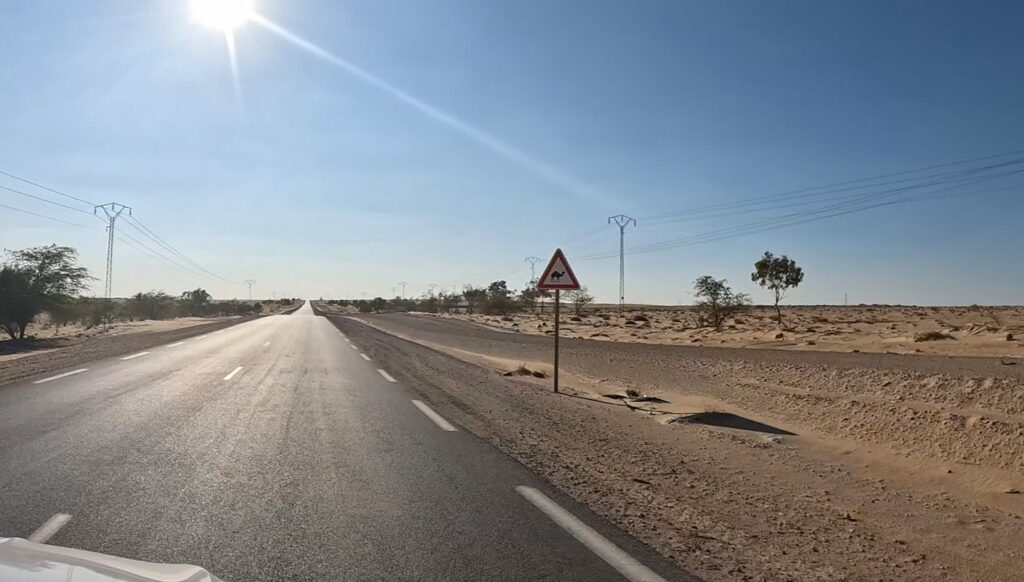
You’ll hit regular police checkpoints, especially when leaving or entering towns. They’re usually chill, just keep your passport, driver’s license, rental contract, and car papers on hand. There are speed radars everywhere along the east coast, but I barely saw any once we got into the rural areas.
While people are driving quite aggresivley and whoever honks louder drives first, you’ll get used to the traffic and driving outside the cities is actually very rewarding.
⚠️ Important tips from the road:
Always carry tons of water—especially in the south. If your car breaks down in the desert with no signal, you’ll regret not bringing more.
Make sure the rental comes with a spare tire (insist on checking it before you drive off).
Download offline maps in advance. Google Maps works, but some regions have no service, and signage is… creative.
And yeah, watch out for camels. They’re not joking when they say you’ll see them on the road.
One time, we even accidentally drove into a military base. There were no signs, and the road looked completely normal… maybe stay alert for that too.
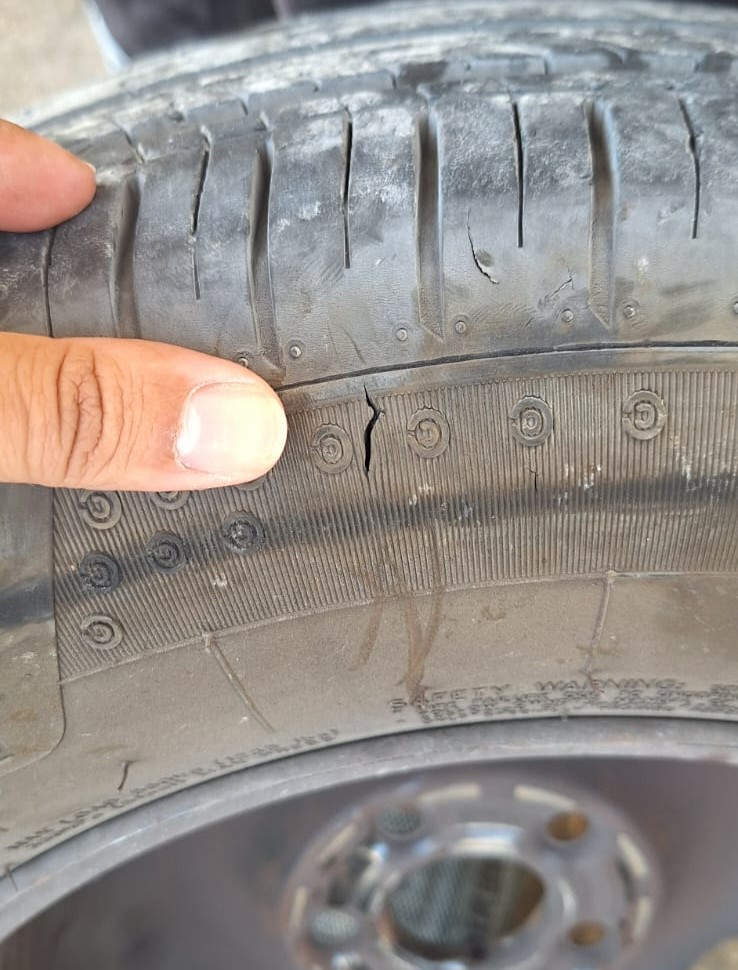
👮 Police Checkpoints and Corruption
If you’ve traveled through parts of Africa before, it probably won’t surprise you that corruption can be part of the experience and Tunisia is no exception. To put it simply: some police officers look for ways to supplement their salary, especially during routine checkpoints.
My Moroccan friend and I drove through Tunisia by car and my name was not even in the rental car papers. While most police officers didn’t care for the car papers and only for our passports one time we got stopped in the middle of the night at a checkpoint and I happened to be driving.
The police officer noticed my name not being in the papers and after my friend discussed with him in arabic he wanted to hand him 50 Dinar (15€) to let us go. He pointed at a camera behind us and we went behind a building to hand him the money.
🔗 More Information about Tunisia?
An Algerian next to us, who was clearly smuggling goods and didn’t even have a license, also managed to “resolve” things for about 100€.
That whole scene pretty much sums up how corruption can work here. On one hand, sometimes a small bribe can get you out of a tricky situation. On the other hand, some officers might try to squeeze money out of you for completely minor or made-up infractions. It really depends on the person you’re dealing with and the vibe of the checkpoint.
👩 Safety for Solo Female Travelers
I’m a guy, and I travelled through Tunisia with another male friend. So I can’t speak from personal experience as a solo female traveller. However I’ve met and talked to women who travelled through Tunisia alone or with other women, and here’s what I’ve gathered.
Generally Tunisia is safe for female solo travellers. Yet you can expect starring and catcalling in major cities by some Tunisians who think Western Woman are easy. This goes for all north african countries, including Egypt and Morocco. Dressing modestly (long pants or skirts, covered shoulders) helps keep a lower profile and can reduce unwanted attention.
Outside the cities, especially in more rural or conservative areas, women tend to get a lot of looks, just because it’s less common to see solo foreign women there. That said, these are also the places where people are often the most welcoming and respectful.
If you’re a solo woman planning to backpack through Tunisia, know that many others have done it before you and had positive experiences from what I have heard.
🤔 Frequently Asked Questions About Safety in Tunisia
Are there terrorism threats in Tunisia?
Is there a high crime rate in Tunisia?
Is it safe to travel around Tunisia by bus or shared taxi?
Is Tunisia safe for solo female travelers?
What areas in Tunisia should tourists avoid?
Final Thoughts

I totally get why Tunisia might not have felt like a safe place to visit back in 2015, especially after those tragic attacks. But things have changed since then. Today, Tunisia is much safer for travelers who stay aware and follow some basic precautions. The big cities and popular tourist spots have stepped up security, and most visitors have smooth, enjoyable experiences.
That said, I do recommend keeping your senses sharp around border areas and in the deep south. These regions can still be unpredictable, so it’s best to stay informed, avoid attention and travel with caution.
More about Tunisia

How to visit Tunis in 2025
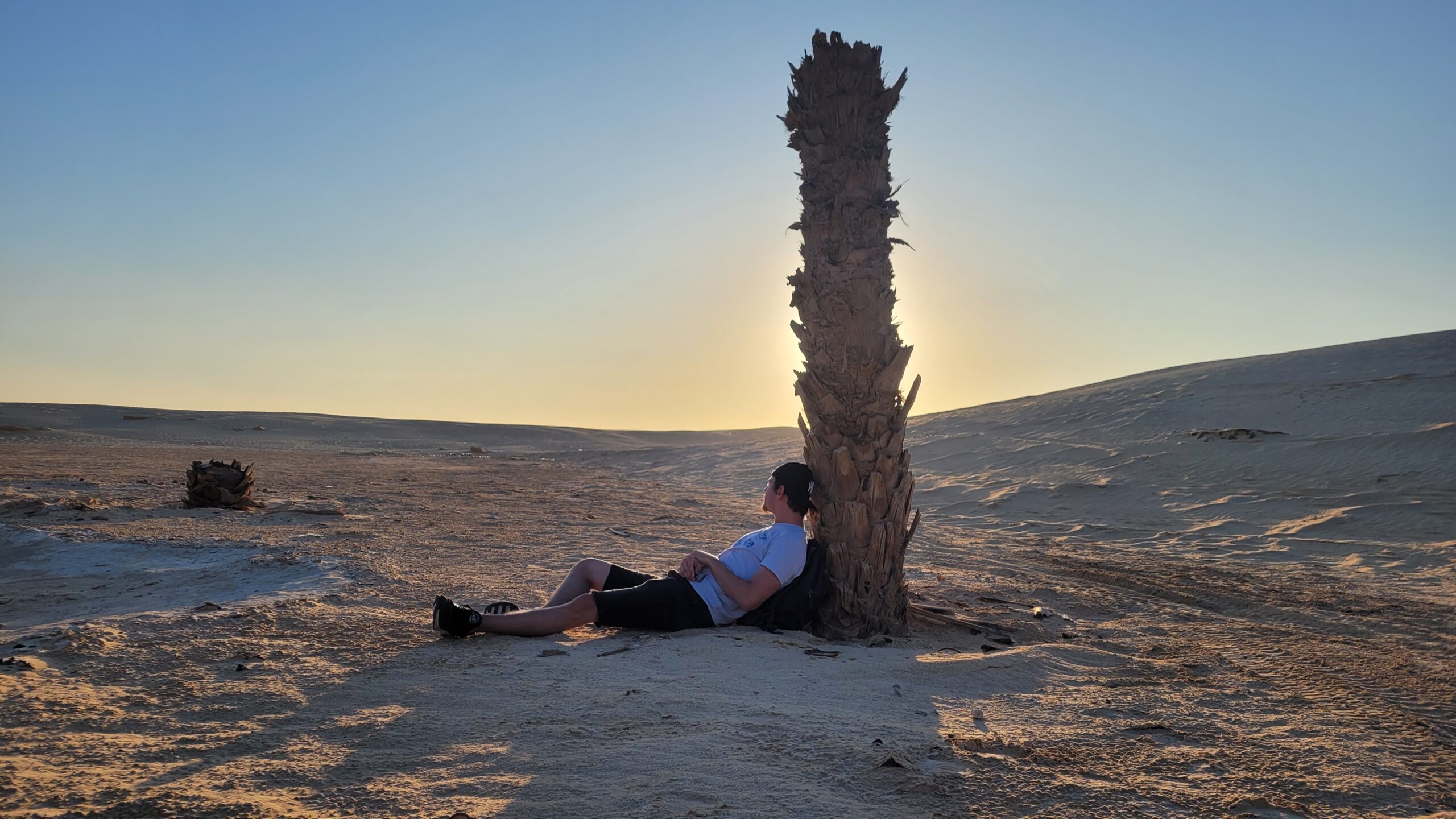
How to visit Tunisia in 2025
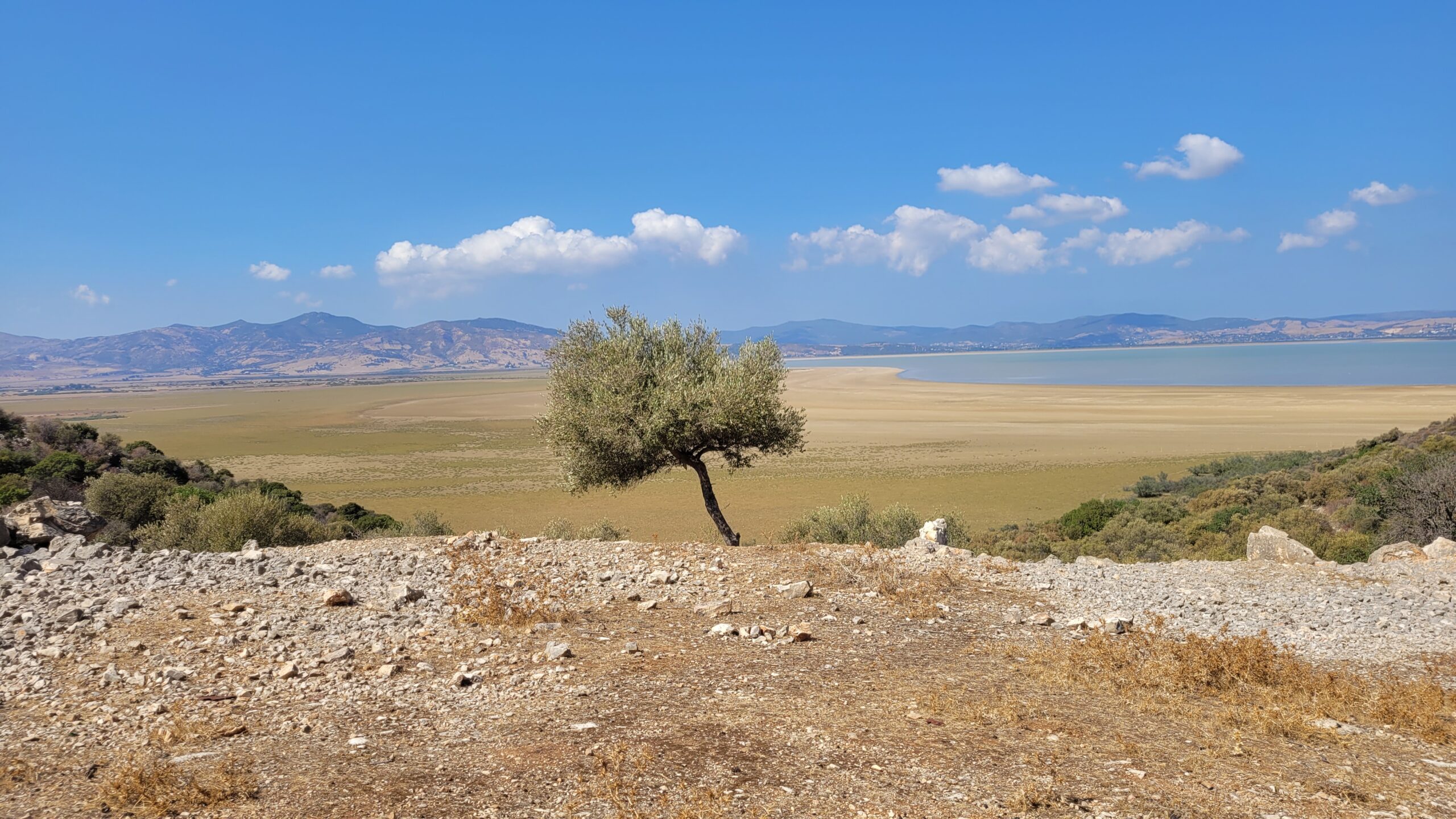
Is Tunisia Safe In 2025?
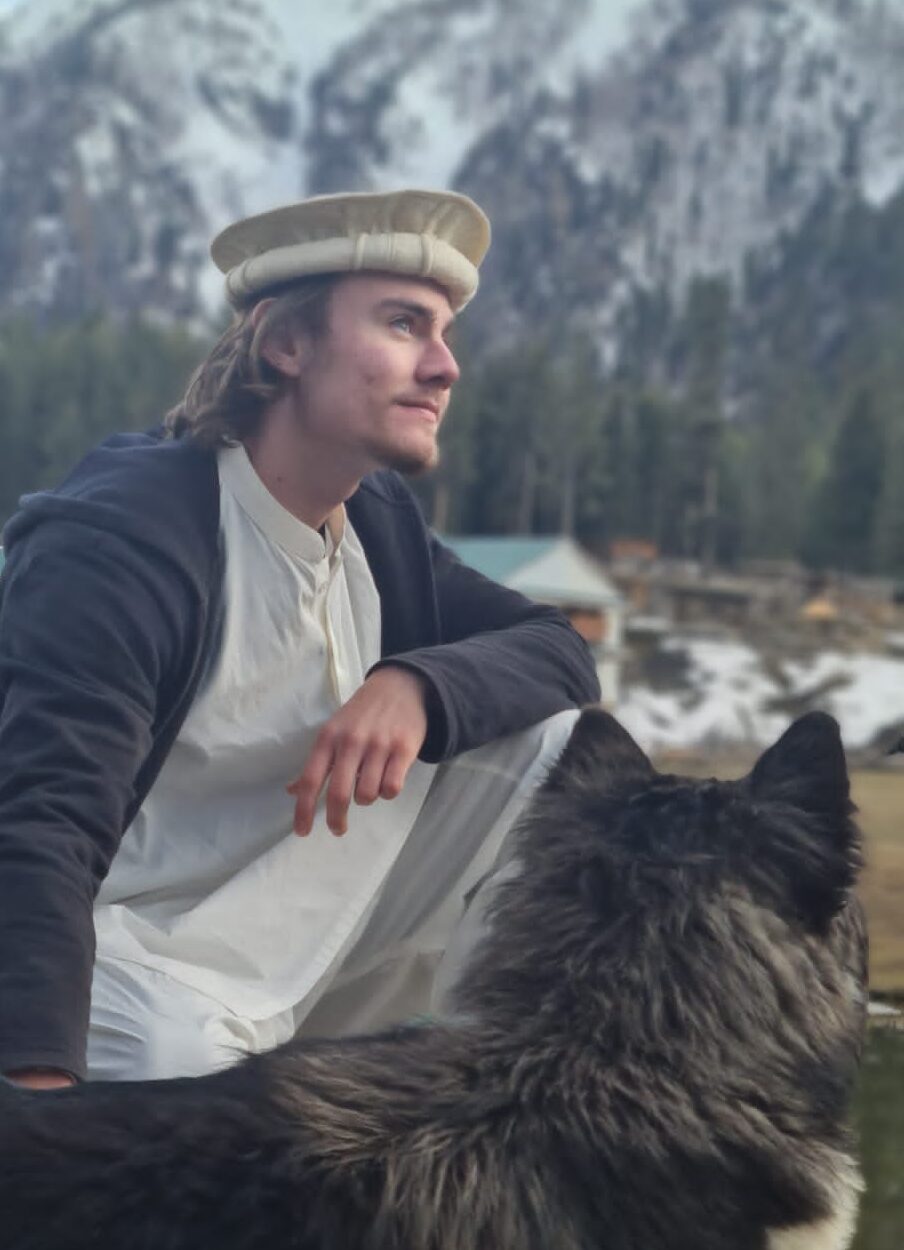
Alex
Welcome off the beaten path!
I’m Alex, a 23 year old traveler who loves to explore the corners of the world, that still seem to be untouched. In this Blog I want to share my experiences with you.

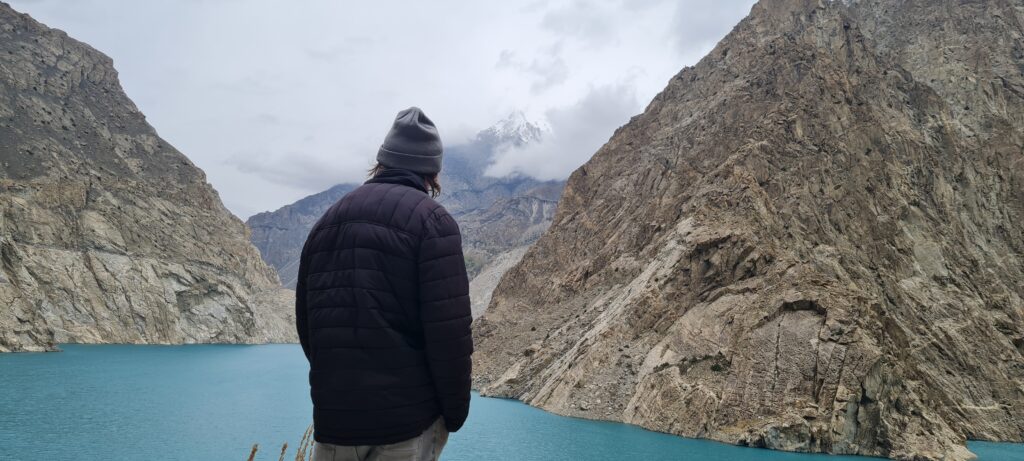
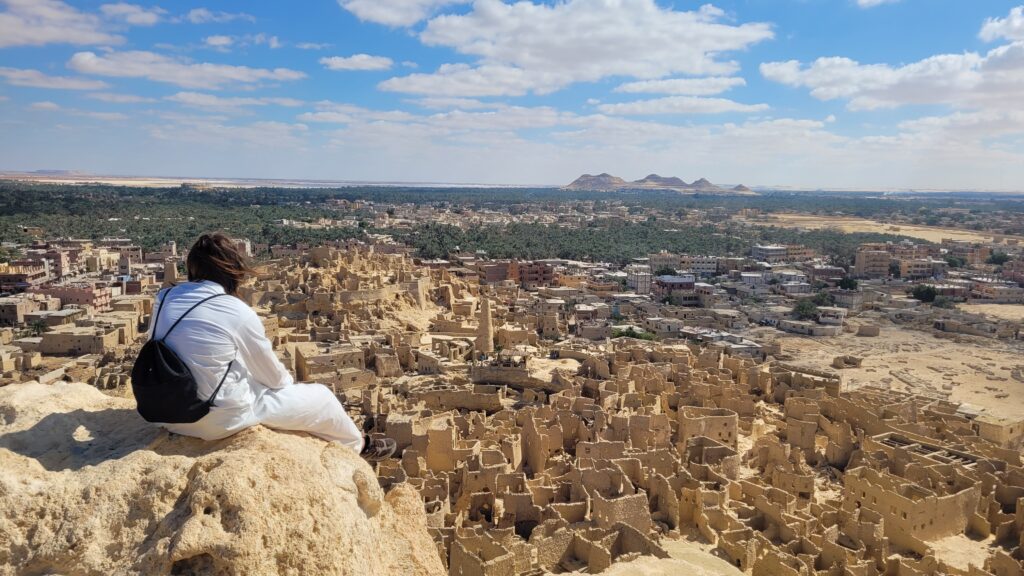
Learn more about Tunisia here:
https://itsalexabroad.com/tunisia/